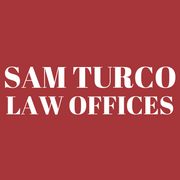
One of the first and most important decisions an individual must make when filing for bankruptcy is selecting a petition to file. For many borrowers—especially those unable to pay off their debts—Chapter 7 bankruptcy is the best way to reclaim your life by relieving your debt.
How Chapter 7 Bankruptcy Works
Under Chapter 7 bankruptcy, the court will discharge unsecured debt, including most credit cards and outstanding medical bills. In exchange, the trustee is entitled to seize some of your assets to pay off your creditors. A bankruptcy petition also includes an automatic stay, which puts an immediate stop to all collections activities—including phone calls, lawsuits, and wage garnishment.
When Chapter 7 Bankruptcy Is Right for You
 Chapter 7 bankruptcy is designed for those who are unable to pay their unsecured debts, and, likely, won't be able to in the future. Many people who have experienced unexpected medical expenses or a sudden job loss find a Chapter 7 petition to be the only way they can get back on track. If you’re not making progress on your bills or can't even make the minimum payments, Chapter 7 bankruptcy may be right for you.
Chapter 7 bankruptcy is designed for those who are unable to pay their unsecured debts, and, likely, won't be able to in the future. Many people who have experienced unexpected medical expenses or a sudden job loss find a Chapter 7 petition to be the only way they can get back on track. If you’re not making progress on your bills or can't even make the minimum payments, Chapter 7 bankruptcy may be right for you.
Borrowers who make less than the median income for their state are automatically eligible to file for Chapter 7 bankruptcy protection. Those who make more will have to pass a means test to ensure they are not abusing the system. Your bankruptcy attorney will be a guiding force in determining whether you qualify for debt relief under a Chapter 7 petition. Those who do not qualify may be entitled to file for Chapter 13 bankruptcy instead.
With offices in both Omaha and Lincoln, NE, the team at Sam Turco Law Offices provides comprehensive debt relief services to struggling borrowers throughout Nebraska. Visit their website to learn more about the difference been Chapter 7 and Chapter 13 bankruptcy, or call (402) 614-7171 to schedule a consultation today.
About the Business
Have a question? Ask the experts!
Send your question

